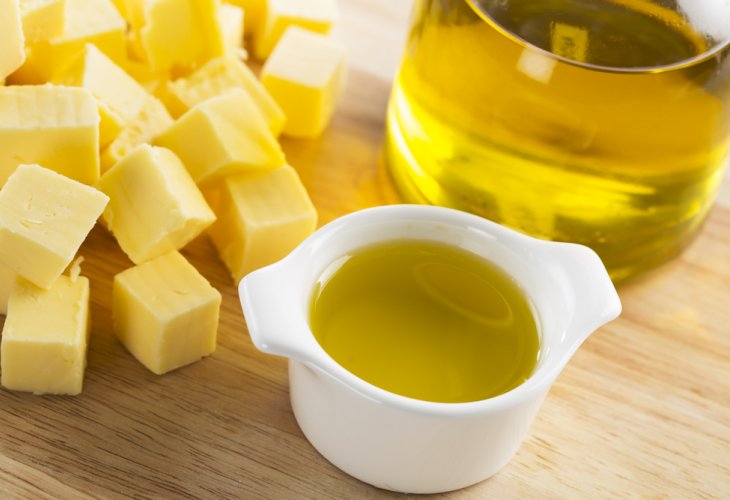Health and Nutrition
Oil vs. Butter vs. Margarine: Which Is Healthiest for Cooking and Baking?
A nutritionist reveals the pros and cons of each fat, why cold-pressed oils are best, and why margarine may be the worst choice for your health
 (Photo: shutterstock)
(Photo: shutterstock)What’s the real difference between oil, butter, and margarine, and which one should you use in your kitchen? Nutritionist Dr. Maya Rosman highlights the pros and cons of each.
The Truth About Oil
“Oils are made solely from plants,” says Dr. Rosman. “Most plant-based oils are unsaturated fats which means the fat molecules are bent and don’t bond together, so they stay liquid. However, some plant-based oils, like coconut oil, are saturated fats, meaning the molecules are straight and bond together, making the oil solid at room temperature.”
Plant-based oils don’t cause heart disease, no matter the source, whether carrot oil, avocado oil, or walnut oil. All of them provide roughly 900 calories per 100 grams.
However, Dr. Rosman advises not to use refined oil. “It has no nutritional value. Always choose oil labeled ‘unrefined’ or ‘cold-pressed’.”
Cold-pressed oils retain important nutrients, including vitamins, essential fatty acids, and high nutritional value. Each type has unique health benefits, and she therefore recommends rotating oils in your diet.
What About Butter?
Butter is a saturated animal fat, which is why it’s solid when refrigerated. “People used to think butter was harmful because of the cholesterol, but now we know that’s not necessarily true.”
Calorie-wise, butter is similar to oil with about 50 calories per teaspoon. Moderation is key, especially if you're watching your weight or fat intake.
The Real Problem: Margarine
Originally, margarine was developed as a plant-based butter alternative. Manufacturers took liquid vegetable oil and artificially hydrogenated it, forcing hydrogen atoms into the oil molecules to straighten them, so they bond and turn solid. This process created trans fats, which mimic the texture of butter but are far more harmful.
“Margarine is the worst fat you can use,” Dr. Rosman warns. “Trans fats are the number one cause of heart disease, and should never be brought into the home.”
Today, some margarine brands are labeled “trans-fat-free” and made with dietary fibers or alternative ingredients. Still, Dr. Rosman concludes: “In my opinion, it’s better to use real butter.”
What’s Best for Your Health?
Use Cold-Pressed Oils: Look for "unrefined" or "cold-pressed" on the label. Rotate different oils like olive, walnut, and avocado for variety and nutrition.
Butter in Moderation: It’s not as bad as once thought, but should be used sparingly due to its calorie content.
Avoid Traditional Margarine: Especially those made with hydrogenated oils and trans fats. Even newer versions may not be worth the risk.
Choose wisely, and your heart, metabolism, and taste buds will thank you.

